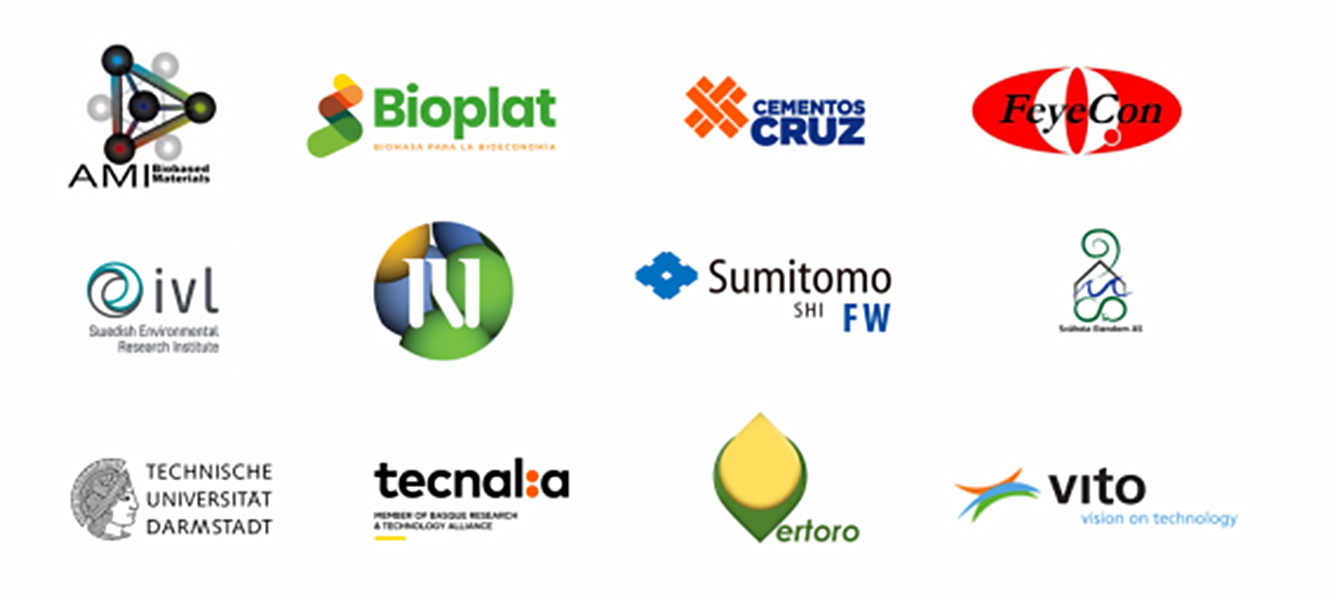CARBIOW
An extraordinary multidisciplinary and multinational team will work together for the next 42 months to develop innovative and sustainable processes to produce biofuels from organic waste with negative emissions.

CARBIOW (Carbon Negative Biofuels from Organic Waste) is a new research and innovation project funded by the European Climate, Environment and Infrastructure Executive Agency (CINEA) that addresses green transition and circular economy by proposing novel technologies that cover the whole process of conversion of organic waste to biofuels. The project has virtually held its kick-off meeting last 3 November and officially started to work together in the planning of the work to be done the next months.
The goal of CARBIOW is to establish an efficient and scalable process to convert the Organic Fraction of Municipal Solid Waste (OFMSW) and other hard-to-utilize solid organic wastes to biofuels with the following key targets:
- Establishing a new pre-treatment process of OFMSW where a cleaner, denser, carbon-rich, dry, and homogenous solid biofuel is produced.
- Utilization of pure oxygen (nitrogen-free gas) in combustion and gasification to produce clean syngas.
- Carbonization of gasification ashes with CO2 through innovative carbonation technique to decarbonize the cement industry and address carbon negativity.
- Production of Fischer-Tropsch fuels for the maritime and aviation industry. The latter target will focus on the production of alcohols for maritime, and kerosene for the aviation sector.
The ambition of CARBIOW is to closely contribute to the key aspects of sustainable development, green transition, and (bio)circular economy by:
- Establish novel techniques such as torrefaction for organic waste pre-treatment and clean biofuel production.
- Boost novel technology advancement in oxy-conversion of waste biofuels.
- Valorization of OFMSW as a reliable, abundant, and secured source of biomass and collaborating to establish true bioeconomy.
- Decarbonization of hard-to-abate sectors like aviation and maritime.
- Decarbonization of large industries such as cement through CO2 fixation by promoting innovative and efficient techniques and generation of new negative carbon footprint mineral feedstocks.
The research group Sustainability of Chemicals and Materials of the Aachen Maastricht Institute for Biobased Materials (AMIBM) will investigate the sustainability of the organic waste value chains with a emphasis on the environmental and social impact assessment.
The consortium is composed of 12 partners spread around Europe: FeyeCon, Universiteit Maastricht and VERTORO from the Netherlands, IVL Svenska Miljoeinstitutet from Sweden, NIC from Slovenia, Svaheia Eiendom AS from Norway, Sumitomo SHI FW from Finland, Technische Universitat Darmstadt from Germany, VITO from Belgium, and BIOPLAT, Cementos La Cruz, and the leader, Fundación Tecnalia Research & Innovation, from Spain. The diversity, excellence and strength of the experts within the consortium of CARBIOW guarantee the technological, technical, and societal advancement of the project.
